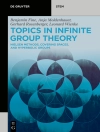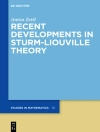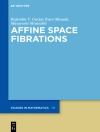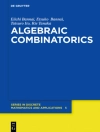This book presents advanced case studies that address a range of important issues arising in space engineering. An overview of challenging operational scenarios is presented, with an in-depth exposition of related mathematical modeling, algorithmic and numerical solution aspects. The model development and optimization approaches discussed in the book can be extended also towards other application areas.
The topics discussed illustrate current research trends and challenges in space engineering as summarized by the following list:
• Next Generation Gravity Missions
• Continuous-Thrust Trajectories by Evolutionary Neurocontrol
• Nonparametric Importance Sampling for Launcher Stage Fallout
• Dynamic System Control Dispatch
• Optimal Launch Date of Interplanetary Missions
• Optimal Topological Design
• Evidence-Based Robust Optimization
• Interplanetary Trajectory Design by Machine Learning
• Real-Time Optimal Control
• Optimal Finite Thrust Orbital Transfers
• Planning and Scheduling of Multiple Satellite Missions
• Trajectory Performance Analysis
• Ascent Trajectory and Guidance Optimization
• Small Satellite Attitude Determination and Control
• Optimized Packings in Space Engineering
• Time-Optimal Transfers of All-Electric GEO Satellites
Researchers working on space engineering applications will find this work a valuable, practical source of information. Academics, graduate and post-graduate students working in aerospace, engineering, applied mathematics, operations research, and optimal control will find useful information regarding model development and solution techniques, in conjunction with real-world applications.
Cuprins
Preface and Acknowledgements.- Control Propellant Minimization for the Next Generation Gravity Mission.- Global Optimization of Continuous-Thrust Trajectories Using Evolutionary Neurocontrol.- Nonparametric Importance Sampling Techniques for Sensitivity Analysis and Reliability Assessment of a Launcher Stage Fallout.- Dynamic System Control Dispatch: A Global Optimization Approach.- Choice of the Optimal Launch Date for Interplanetary Missions.- Optimal Topological Design of a Thermal Isolator for a Monopropellant Space Thruster.- Evidence-Based Robust Optimization of Pulsed Laser Orbital Debris Removal under Epistemic Uncertainty.- Machine Learning and Evolutionary Techniques in Interplanetary Trajectory Design.- Real-Time Optimal Control using Trans WORHP and WORHP Zen.- Theory and Applications of Optimal Finite Thrust Orbital Transfers.- Collection Planning and Scheduling for Multiple Heterogeneous Satellite Missions: Optimization Problem and Mathematical Programming Formulation.- Single-Stage-to-Orbit Space-Plane Trajectory Performance Analysis.- Ascent Trajectory Optimization and Neighboring Optimal Guidance of Multistage Launch Vehicles.- Optimization Issues in the Problem of Small Satellite Attitude Determination and Control.- Optimized Packings in Space Engineering Applications – Part I.- Optimized Packings in Space Engineering Applications – Part II.- A Catalogue of Parametric Time-Optimal Transfers for All-Electric GEO Satellites.
Despre autor
Giorgio Fasano is a researcher and practitioner at Thales Alenia Space, with more than three decades of experience in the field of optimization and space engineering applications. He is a Fellow of the Institute of Mathematics and its Applications (IMA, UK), with the designations of Chartered Mathematician (IMA, UK), as well as Chartered Scientist (Science Council, UK).
János D. Pintér is a researcher and practitioner with over four decades of experience in the broad area of systems modeling, analytics, and optimization, with an emphasis on algorithm and software development for nonlinear optimization.Dr. Pintér is the principal developer of nonlinear optimization software products linked to modeling platforms. In 2016 he joined the Department of Industrial and Systems Engineering at Lehigh University, where he teaches a range of operations research topics.












